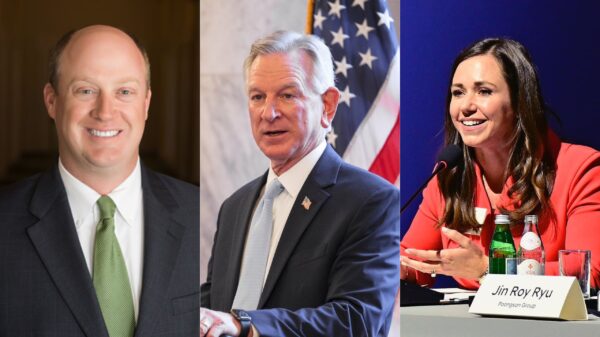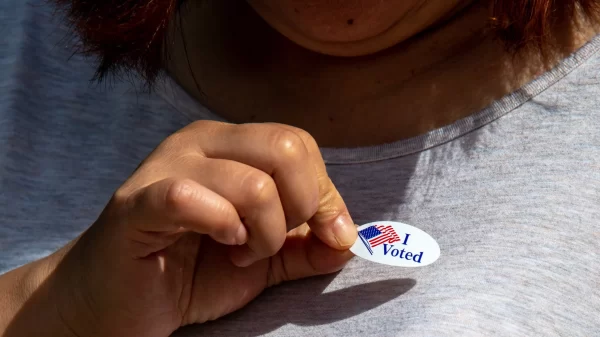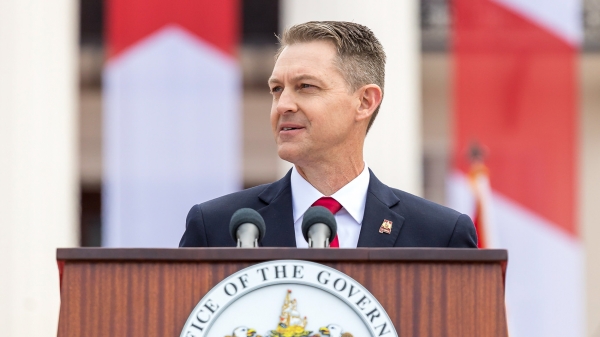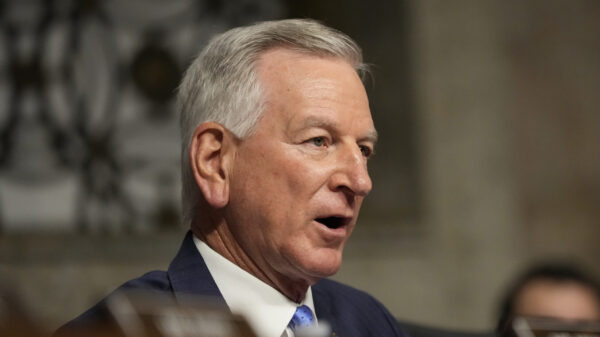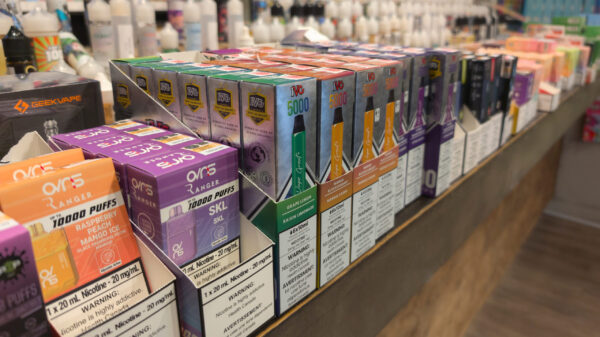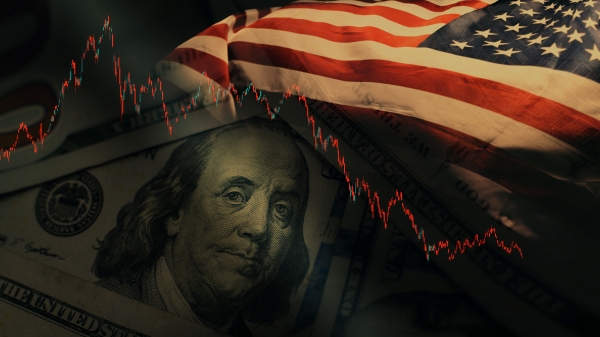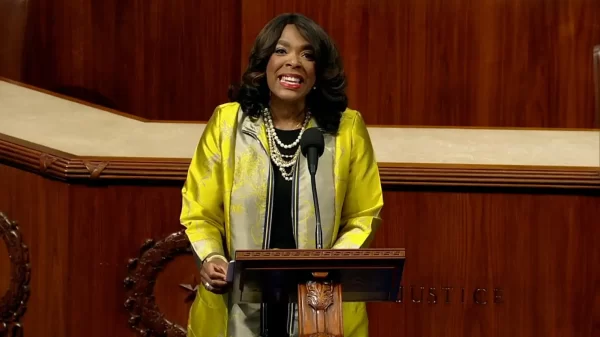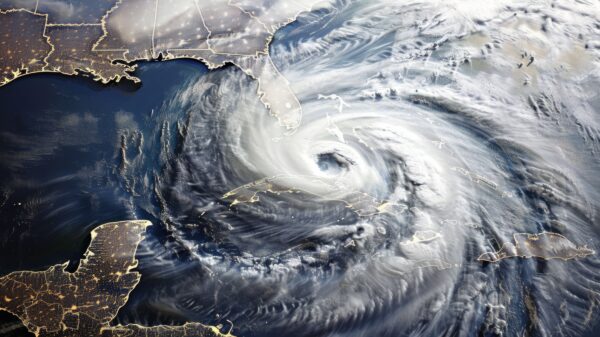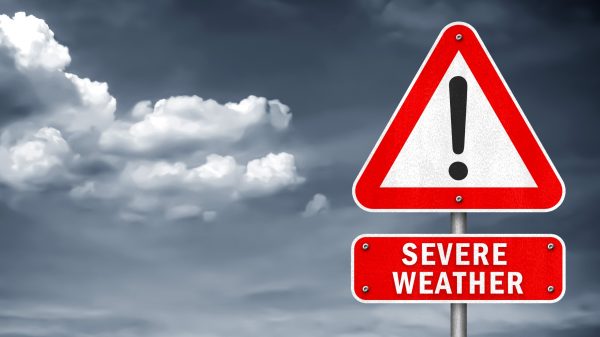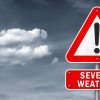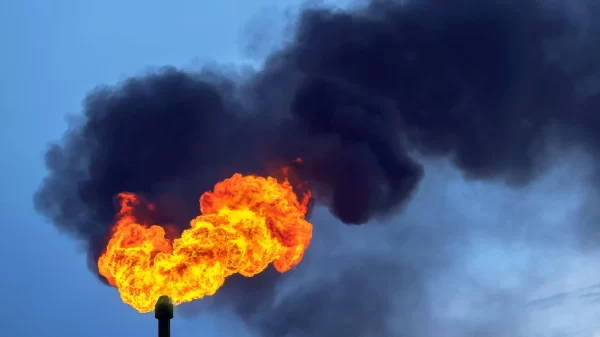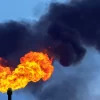Leaders of the American natural gas and petroleum industries spoke with reporters Wednesday about what the energy industry is doing to prepare for the coming 2021 Atlantic hurricane season.
The National Oceanic and Atmospheric Administration released its 2021 Atlantic hurricane season outlook recently, predicting a 60 percent chance of an above-normal number of named storms. The NOAA outlook is predicting a likelihood of 13 to 20 named storms with sustained winds of at least 39 miles per hour.
2020 was the most active hurricane season on record with several big hurricanes, including two that adversely affected Alabama, particularly Baldwin and Mobile counties, where repair and recovery efforts are still underway.
Suzanne Lemieux is the manager of operations security and emergency response policy for the American Petroleum Institute.
“We are looking at a heavier than normal hurricane season,” Lemieux told reporters.
“2020 was the busiest on record,” Lemieux said. “We don’t expect 2021 to be anywhere near that active.”
“We are a lifeline for the American consumer,” Lemieux said of the oil and gas industries.
Lemieux said: “We are incorporating lessons learned from last year” into planning for 2021 and beyond. “We really are trying to be as prepared as possible for any eventuality.”
Flooding was a major issue for the oil industry in the 2020 storms and Lemieux said that the industry is looking at being better prepared for where their facilities are most vulnerable to flooding has been underway for months.
“Moving a refinery or a wellhead to avoid flooding is usually part of a long-term strategy,” Lemieux said in response to a reporter’s questions about moving that infrastructure to higher ground.
“We are coordinating with state and local governments,” Lemieux said of the petroleum and gas industries as they work on their storm planning for 2021.
Jeff Gunnulfsen is the senior director of security and risk management issues at the American Fuel and Petrochemical Manufacturers.
“The 2021 hurricane season was a crazy one,” Gunnulfsen said. “In 2020 we had an incredible amount of hurricanes on top of a global pandemic.”
“The refining and petrochemical industries have been working hard to prepare for the 2021 hurricane season,” Gunnulfsen said.
Gunnulfsen said that 2020 demonstrated how essential the refining industry is to the American economy.
“Access to gasoline and diesel is essential,” Gunnulfsen said.
“Maintaining safe conditions for our employees,” is a major concern for the industry Gunnulfsen said. In addition to the impact of severe storms and flooding risk, “We are focused on how a broadband or wireless outage could affect systems.”
A reporter asked how government can provide money to the industry to help them disaster proof the oil and gas industry.
“We don’t need subsidies,” Gunnulfsen responded.
Jackie Malatesta is the Manager of Operations and Engineering Services for the American Gas Association.
Malatesta said that as many as 72 million customers depend on the gas industry.
Malesta said that AGA members, “Are reviewing our emergency plans” and are “Preparing local command centers if they are needed and are doing emergency drills,” in preparation for the 2021 hurricane season.
Malesta said that most of the members, “Have signed a mutual aid agreement with over 100 companies participating.”
“The flooding aspect with hurricanes,” is the main concern that the gas pipeline companies are concerned with Malesta explained. “Because pipelines are underground mutual aid is rarely needed.”
Sherri Stone is the Vice President of the Energy Marketers of America (EMA).
“98 percent of our members are independently owned small businesses,” Stone said.
Stone said that a supply chain interruption is the biggest concern of the energy marketers.
Stone said that the industry’s planning to avoid a weather-related supply chain disruption is being exacerbated by the ”nationwide truck driver shortage.”
“Gas stations need electricity and for roads to be clear,” Stone said.
Stone said that panic buying up of all the available fuel by the public is probably the biggest issue that the gas station industry has to deal with in a severe weather-related event.
“Panic buying is not necessary,” Stone said of hurricane season as well as the recent cyber attack on the Colonial Pipeline. “It is a very short-term situation. Weeks of supply interruption is not going to happen.”
“It would be better if governors did not issue state of emergencies,” Stone said in response to a question from reporters about governor’s states of emergencies leading to panic buying of fuel then leading to gas stations running out of fuel to sell.
Mike Istre is the interim director of security, reliability, and resilience for the Interstate Natural Gas Association of America.
“Any disruption in natural gas delivery is rare, brief, and controlled,” Istre assured. “The industry has extensive networks of natural gas pipelines with parallel lines and geographic diversity. Our safety system are less reliant on electric power systems.”
Istre said that the network of pipeline operators is installing backup systems in both minor facilities like valve stations with generators as well as solar and wind power so that the pipelines can continue operating even in a widespread natural disaster event.
If members of the public would always make sure that their gas tanks are at least three-quarters full during hurricane season then consumers would have no reason to panic in case a hurricane (or other unexpected events) causes a temporary supply chain interruption. Owners of electric vehicles should make sure that their electric car is fully charged ahead of an oncoming hurricane or tropical storm.
Be sure to charge laptops and cell phones in advance of any approaching storm or severe weather event. Persons in areas where there is a strong potential of hurricane impact should have their evacuation plan ready with all members of their household conversant and up to date on their plan. Family members in other areas should know where you will be in case you have to evacuate. Please tell them that you are evacuating and keep them informed so that first responders don’t have to deal with calls from frantic relatives calling about missing family members.

